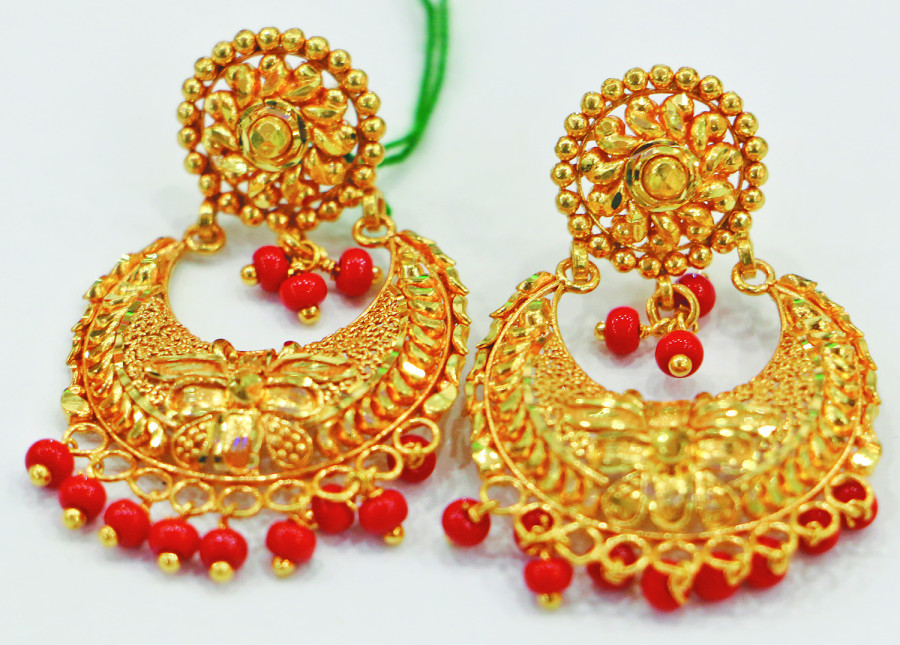Money
Banks stop importing gold as markets close due to Covid-19 restrictions
Nepal imported the yellow metal valued at Rs13.63 billion in the last fiscal year 2019-20.
Krishana Prasain
Banks have stopped importing gold because there is nowhere to sell it as the country is under lockdown, with one happy result that this may help to narrow the trade deficit, bankers said.
Anil Sharma, executive director of the Nepal Bankers’ Association, said banks stopped buying gold as soon as the restriction order was imposed in the valley and other parts of the country.
“The banks have around 10-15 kg gold in stock as of now,” he said. "Chances of imports resuming are slim as markets are closed, and there can be no demand unless the lockdown is lifted," he added.
Last year too, imports stopped right after the stay-at-home order was issued, and banks started buying the yellow metal again only after the all clear was sounded.
According to the Trade and Export Promotion Centre, the country imported gold worth Rs19.43 billion in the first nine months of the current fiscal, a steep 42.5 percent year-on-year rise. Imports of the yellow metal totalled Rs13.63 billion during the same period of the last fiscal year.
Nepal imported gold valued at Rs13.63 billion in the whole of the last fiscal year 2019-20. The country imported precious yellow metal of Rs34.63 billion in the fiscal year 2018-19.
Narayan Prasad Pokhrel, deputy spokesperson and information officer at Nepal Rastra Bank, said that it was unlikely the central bank would reduce the daily import quota of 20 kg that had been increased a month ago.
"Changes will be made in the upcoming monetary policy if required, but things will remain as they are before that," Pokhrel added.
In April last year, Nepal Rastra Bank had slashed the daily gold import quota from 20 to 10 kg in a bid to stem the depletion of foreign currency reserves.
But responding to high demand in recent months, the central bank increased the quota to 20 kg on April 3 this year while bullion traders had been urging it to raise the limit to 30 kg.
According to Pokhrel, foreign currency reserves are at a comfortable level, so the central bank has no plans to cut the import quota for now. "But since banks have started issuing dollar prepaid cards worth $500, this may put a dent in foreign exchange reserves," he added.
Pokhrel said that the daily gold import quota of 20 kg was more than adequate considering the size of the country's economy.
“Demand for the precious metal had swelled to 35-40 kg daily before the second wave hit, and forced the postponement of weddings and other auspicious functions,” said Tej Ratna Shakya, former president of the Federation of Nepal Gold and Silver Dealers' Associations.
"The government has put almost all districts under lockdown, as a result of which gold markets across the country had to shut down during the peak season," Shakya said.
The federation had written to the Nepal Bankers’ Association to stop importing gold following the prohibitory order as demand had dried up with the bullion markets closed.
"Gold dealers reopened their doors three months into the first lockdown last year," Shakya said. "But this year the situation is different due to the rapid spread in infections."
The bullion market resumed business on June 7 last year, and transactions started increasing with the arrival of the Dashain and Tihar festivals. The price dropped slightly after peaking at Rs100,000 per tola on August 5, reaching a low of Rs85,600.
Demand rose steeply in mid-March this year and bullion traders asked the government to increase the quota. “Demand surpassed supply even after the import quota was increased, that is why we had asked the government to raise it to 30 kg,” said Shakya.
Nepali investors turned to gold as a safe haven following uncertainty in the market amid an economic slowdown and inflation, which pushed up demand further, traders said. This even fuelled a black market with the price higher by Rs3,000 per tola.
According to the federation, gold was priced at Rs92,800 per tola on Monday.




 14.24°C Kathmandu
14.24°C Kathmandu















